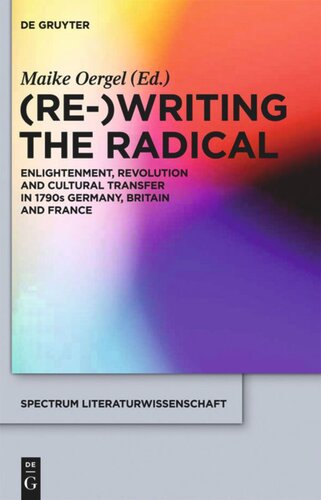

Most ebook files are in PDF format, so you can easily read them using various software such as Foxit Reader or directly on the Google Chrome browser.
Some ebook files are released by publishers in other formats such as .awz, .mobi, .epub, .fb2, etc. You may need to install specific software to read these formats on mobile/PC, such as Calibre.
Please read the tutorial at this link: https://ebookbell.com/faq
We offer FREE conversion to the popular formats you request; however, this may take some time. Therefore, right after payment, please email us, and we will try to provide the service as quickly as possible.
For some exceptional file formats or broken links (if any), please refrain from opening any disputes. Instead, email us first, and we will try to assist within a maximum of 6 hours.
EbookBell Team

5.0
80 reviews The essays in this volume discuss the overlap between philosophical, aesthetic, and political concerns in the 1790s either in the work of individuals or in the transfer of cultural materials across national borders, which tended to entail adaptation and transformation. What emerges is a clearer understanding of the “fate” of the Enlightenment, its radicalization and its “overcoming” in aesthetic and political terms, and of the way in which political “paranoia”, generated by the fear of a spreading revolutionary radicalism, facilitated and influenced the cultural transfer of the “radical”. The collection will be of interest to scholars in French, German, English, and comparative studies working on the later 18th century or early 19th century. It is of particular interest to those working on the impact of the French Revolution, those engaged in reception studies, and those researching the interface between political and cultural activites. It is also of key interest to intellectual historians of this period, as well as general historians with an interest in modern conservatism and radicalism.